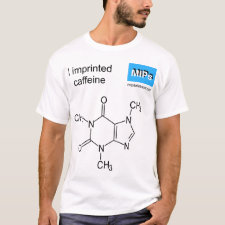
Authors: Yan LS, Wang YM, Wang ZH, Luo GA
Article Title: Molecularly imprinted polymer monoliths prepared in capillaries by photoinitiated in situ polymerization for the screening of caffeine.
Publication date: 2001
Journal: Chemical Journal of Chinese Universities
Volume: 22
Issue: (12)
Page numbers: 2008-2010.
Alternative URL: http://en.cnki.com.cn/Article_en/CJFDTotal-GDXH200112012.htm
Abstract: A novel and simple method for the in situ preparation of monolithic molecularly imprinted flow-through polymers is described. The polymers were prepared inside UV transparent fused silica capillaries by photo-initiated polymerization of a mixture of caffeine as the template, methacrylic acid as the functional monomer, trimethylolpropane trimethacrylate as the cross-linking agent in the presence of a porogenic solvent consisting of toluene and isooctane. Scanning electron micrographs confirmed the presence of the clusters of globules separated by large pores on the monolithic structure. The effectiveness of the imprinted polymer monolithic column was demonstrated in microcolumn liquid chromatography (mu -HPLC) mode by the screening of caffeine from a mixture of four structural analogues, the resolution factor R-s of 2.57 and 2.97 for the separation of caffeine against theophylline and theobromine, respectively, were obtained, while the non- imprinted column showed no specific selectivity. It is considered that the template was effectively imprinted in monolithic polymer by photoinitiated in situ polymerization at a low temperature. Several factors such as the molar ratio of the functional monomer to the imprint molecule and polymerization time affecting the flow-through properties of a MIP column were also investigated. The results show that the obtained columns exhibit higher resolution and column efficiency against the structural analogues than do columns packed with MIP prepared by bulk polymerization and columns packed with continuous molecularly imprinted polymer rod prepared by in situ method
Template and target information: caffeine



Join the Society for Molecular Imprinting

New items RSS feed
Sign-up for e-mail updates:
Choose between receiving an occasional newsletter or more frequent e-mail alerts.
Click here to go to the sign-up page.
Is your name elemental or peptidic? Enter your name and find out by clicking either of the buttons below!
Other products you may like:
 MIPdatabase
MIPdatabase









